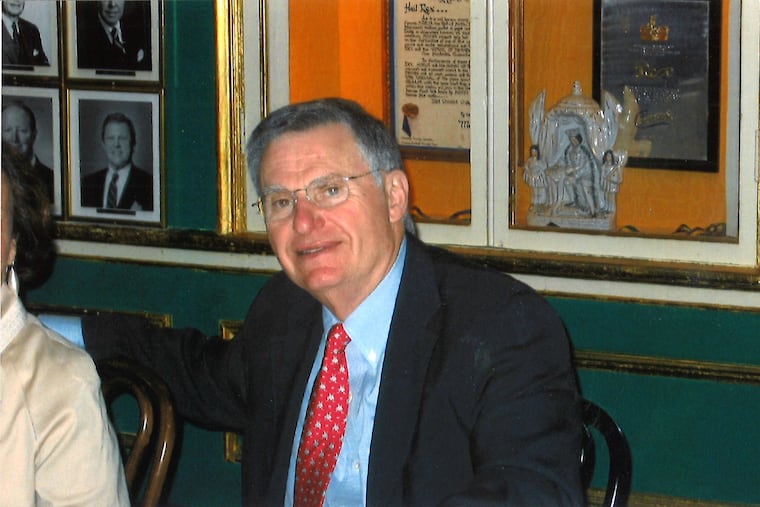Dr. Allen R. Myers, 85, rheumatologist and former dean of medicine at Temple University
Dr. Myers trained hundreds of physicians during his career, many of whom went on to lead medical schools themselves.

Dr. Allen R. Myers, a pioneer in the field of rheumatology and an influential teacher at medical schools throughout the region, died Wednesday, Jan. 15, the day after his 85th birthday, at his home in Ardmore following a decade-long battle with Alzheimer’s disease.
Born and raised in Baltimore, Dr. Myers first came to Philadelphia in 1952 to study at the University of Pennsylvania. He later earned his medical degree at the University of Maryland and trained at hospitals in Michigan and Massachusetts.
Along the way, he reconnected with Ellen Patz, whom he had known during their childhoods in Baltimore, at a mutual friend’s party. They married in 1960.
Dr. Myers returned to Penn in 1969 as an associate professor of medicine at the medical school and a staff physician at its hospital.
That first teaching position sparked a 40-year career in academia, which included a time as dean of Temple University’s School of Medicine. Dr. Anthony Albornoz, one of those former students, said Dr. Myers’ influence has since spread across the globe through his pupils, many of whom now lead medical schools themselves.
“You don’t see many people like that, who have the ability to at once be a good clinician, a great researcher, and have the ability to mold physicians,” Albornoz said. “He was a titan, a legend, a perfect role model. It’s a tragic loss.”
Albornoz fondly remembered Dr. Myers as a “tough as nails” instructor whose passion and zeal for patient care caused him to push his students to their limits.
“I still, when I have a difficult case, ask myself, ‘What would Allen do?’ ” Albornoz said. “He was truly a magnificent man.”
Dr. Myers wrote five medical textbooks throughout his career and also was an active member of the College of Physicians of Philadelphia, a professional education and development group for doctors. He served as the organization’s president for a two-year term.
His son Robert said those accomplishments were emblematic of his father’s two hobbies — “medicine and the teaching of medicine.”
“He had thousands of opportunities to go into private practice, but he never did,” Robert Myers said. “He was wholly interested in healing people and teaching others to heal people.”
Dr. Myers had a reputation among his close family and friends as a master of diagnosing ailments, according to his son. If anyone had a medical question or concern, Dr. Myers would research it himself, or put the person in contact with someone from within his international network of physicians.
“Nobody made a move without checking with him, and he was never too busy,” his wife said. “A friend once commented: ‘How many deans of medicine make house calls?’ ”
Later in life, Dr. Myers developed another passion: promoting the city of Philadelphia. In the early 1990s, he held a leadership role at the city’s Convention & Visitors Bureau, according to Tom Muldoon, the group’s former president. He helped organize and plan dozens of medical conferences each year at the Convention Center, helping cement the then-new venue’s success as a staple of the city, Muldoon said.
“He was a special guy, and his work with me allowed him to express his love of the city,” Muldoon said. “All the conventions that he and the other hospitals brought to the city really helped the Convention Center expand. And without them, I don’t think you would’ve seen the level of change downtown as you did in the ’90s.”
In addition to his wife and son Robert, Dr. Myers is survived by sons David and Scott as well as five grandchildren.
An event celebrating Dr. Myers’ life will be held Friday, Feb. 21, from 5 to 8 p.m. at the College of Physicians of Philadelphia, 19 S. 22nd St., Philadelphia, Pa. 19103.
Contributions may be made to Penn Medicine Development, Attn: Penn Memory Center, 3535 Market St., Suite 750, Philadelphia, Pa. 19104, or at www.PennMedicine.org/PMC. Checks should be made payable to “Trustees of the University of Pennsylvania.”